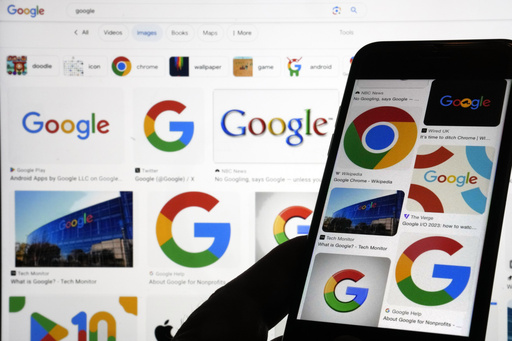In a recent landmark decision, a federal judge has criticized Google for being a ruthless monopolist striving to stifle competition. The case, which may take years to resolve as Google plans to appeal, raises questions about creating alternatives to the dominant search engine. However, the advancement of artificial intelligence (AI) technologies like OpenAI’s ChatGPT and Google’s Gemini could reshape the digital landscape more rapidly and significantly than any legal ruling.
The 277-page decision issued by U.S. District Judge Amit Mehta poses new challenges for Google and its founders Larry Page and Sergey Brin. Initially founded with the motto “Don’t Be Evil,” Google aimed to revolutionize internet search, branching out into various tech sectors over the years. However, the recent antitrust ruling may lead to legal constraints for Google, while rival Microsoft gains momentum in AI through investments in OpenAI.
Google may face potential restructuring similar to the breakup of AT&T in the past, but the CEO Sundar Pichai must navigate these legal challenges and steer the company towards embracing AI technology. A pivotal hearing scheduled for September 6 in Washington, D.C., will kickstart debates on Google’s potential overhaul, following the antitrust decision.
Despite Google’s long-standing argument of providing superior search services, Judge Mehta’s ruling highlighted unfair tactics used to maintain dominance, including lucrative default search engine deals. These deals, worth billions of dollars, enabled Google to collect valuable user data, enhance its search algorithms, and drive advertising revenue, leading to concerns about possible bans on such agreements in the future.
Judge Mehta’s focus on default search deals may have repercussions beyond Google, impacting companies like Apple, which benefits financially from its partnership with Google. An order prohibiting default search engine agreements could compel Apple to invest heavily in developing its search technologies, incurring substantial costs as estimated by Google in a previous analysis cited in the ruling. The decision could prompt a significant shift in the tech industry, underscoring the growing importance of AI advancements and competition regulations.




